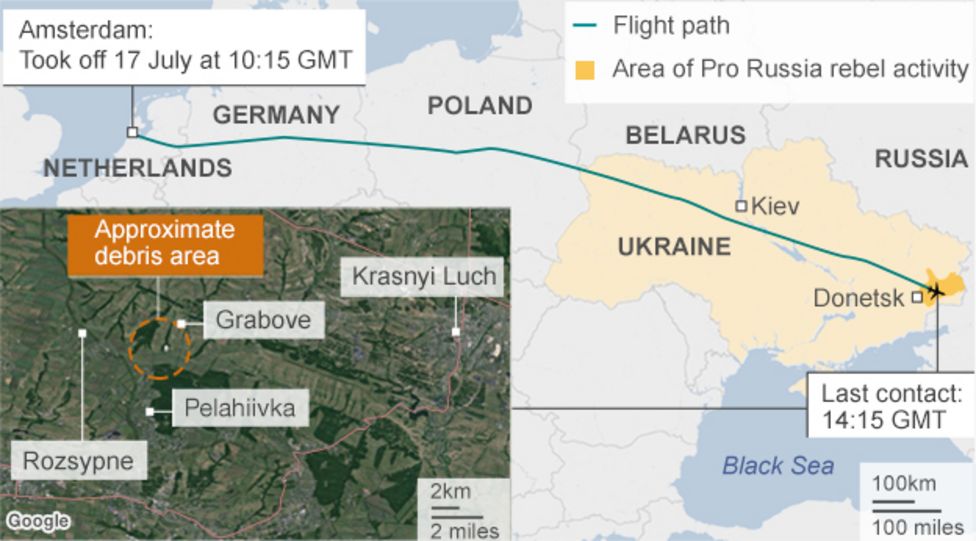Escalating Tensions: Russia Denies U.S. Accusations Amid MH17 Tragedy and Ukraine Conflict
In July 2014, tensions between Russia and the United States escalated as Russia faced accusations of fueling the conflict in Ukraine. Moscow responded by accusing the U.S. of launching a "smear campaign" designed to damage its reputation on the global stage. According to Russia’s foreign ministry, the U.S. was spreading "unfounded public insinuations" about Russia's involvement in the Ukraine conflict, particularly regarding the provision of military support to separatist rebels in the region.
At the center of the controversy was the downing of Malaysia Airlines flight MH17, a tragic event that claimed 298 lives, including 193 Dutch citizens. The plane was shot down over eastern Ukraine, an area controlled by pro-Russian separatists. The U.S. government asserted that these rebels were responsible for shooting down the plane, likely by mistake, using a Russian-provided SA-11 Buk surface-to-air missile. Russian officials consistently denied direct involvement, but rebels themselves offered conflicting accounts of whether they had control of a Buk launcher at the time of the incident.
As investigations into the MH17 disaster unfolded, the U.S. increased its rhetoric against Russia. The Pentagon reported imminent movement of Russian heavy-caliber artillery systems into Ukraine, further complicating the already volatile situation. U.S. State Department spokespersons also indicated there was evidence that Russian troops had been firing on Ukrainian forces from within Russian territory, heightening concerns of direct Russian military involvement.
In response, Russia's foreign ministry accused the U.S. of using "anti-Russian clichés" to divert attention from what it described as the "real reasons for events in Ukraine." Russian officials maintained that their country had shown restraint in the conflict, despite the ongoing fighting in eastern Ukraine between Ukrainian government forces and the separatist rebels, who were allegedly supported by Russia. Moscow portrayed itself as acting cautiously, even as Western nations continued to accuse it of exacerbating the conflict.
Amid these escalating accusations, the European Union took decisive action by expanding sanctions against Russia. On July 25, 2014, the EU announced that it would be freezing assets and imposing visa bans on an additional 15 individuals and 18 entities. These sanctions targeted individuals and organizations deemed responsible for undermining Ukraine’s territorial integrity, including high-ranking Russian officials such as Federal Security Service head Alexander Bortnikov and foreign intelligence chief Mikhail Fradkov.
Meanwhile, the Ukrainian military reported that its forces had come under artillery fire from the Russian side of the border. The situation in eastern Ukraine remained dire, with daily clashes between government troops and separatist forces. Ukraine also released audio recordings that appeared to capture conversations between rebels shortly before MH17 was downed. Although these recordings had not been independently verified, they suggested that the rebels may have mistaken the plane for a military target.
As the fighting continued, efforts to recover the bodies of MH17 victims progressed. By July 25, approximately 200 bodies had been recovered from the crash site and flown to the Netherlands for forensic identification. However, accessing the site remained a challenge for investigators, as it was under rebel control and located in a conflict zone. Dutch and Australian officials were negotiating with Ukrainian authorities to send police to the area in order to secure the site and allow investigators to continue their work.
In summary, the downing of MH17 and the broader conflict in Ukraine led to heightened tensions between Russia and the West, with accusations of disinformation, military involvement, and a struggle to secure justice for the victims.
Source:
BBC News. (2014, July 26). Ukraine conflict: Russia accuses US of 'smear campaign'. BBC. https://www.bbc.com/news/world-europe-28492474

No comments:
Post a Comment